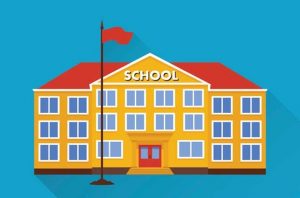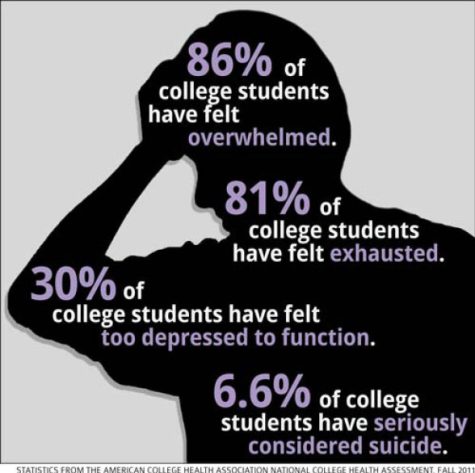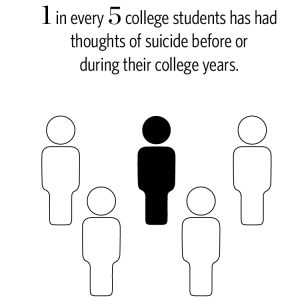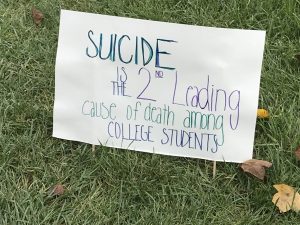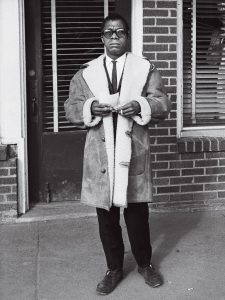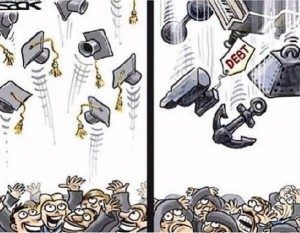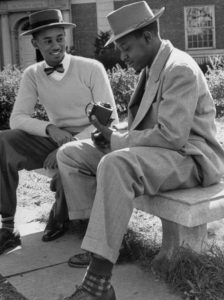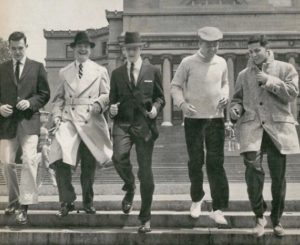Chemistry Lab Picture
Flame Experiment Picture
Publication: Student Handbook or Manual, The Companion for the First Year at City Tech
Nina Darbonne
Dr. Carrie Hall
English Comp 1 1101-D355
4 April 2019
Guide to Success in School
“College is super easy, I pass all of my exams, my GPA is sitting pretty at a 4.0, I don’t have to study after class, and my social life is flourishing!” said no successful college student ever. Being completely candid, more often than not, failing grades, long hours pouring over textbooks and class notes, along with turning down offers to turn up with friends are common college experiences. College life is not an easy task, students often must overcome problems both in and outside the classroom. The struggles that arise tend to negatively affect schoolwork. A common misconception is it is the teacher’s responsibility to take extreme efforts to combat the issues that arise. Students need accountability to persevere and seek help when necessary. Education is not a passive process it takes time and considerable amounts of effort.
Ideally education should be a process that involves almost equal amounts of effort from both the student and the educator. Dr. Robert Leamnson wrote “Learning (Your First Job)”, which describes the components of the learning process (understanding and remembering) and several methods to aid this process both in and out of the classroom. Many of Leamnson’s learning strategies ring true. One example from the text Leamnson writes, “…we have to practice what we understand. Without rehearsal, that fantastic circuitry that enabled our understanding will gradually disintegrate and we can no longer reconstruct what we once understood.” (Leamnson 3) This stresses that without repetition, the initial learning that was achieved will be forgotten. Leaving the learner unable to access the knowledge. The teacher can help the student with the initial understanding portion. But in order to truly learn and commit the information to memory, the student must then put in the effort to review and deepen their understanding of the material. Leamnson goes on to write, “… bright students… understanding what they hear or read. But… get very poor grades and sometimes drop out. The reason is, they neglect the second part of learning, which is remembering.” (Leamnson 2) In essence, despite being able to understand different material, students that do not commit the information to memory will not be able to perform well academically. Great comprehension ability can not help a person if they are unable to later draw forth and make use of the information.
It may seem as though some subjects or classes can be self taught, which leads some individuals to question the role of teachers. However, a vast majority of students require guidance and clarification by educators. John Taylor Gatto taught in the New York City school system for thirty years. He grew to believe the public school system hinders children as opposed to educating and preparing them to be responsible, productive adults. Gatto identifies his major gripes with the public school system in his article “Against School.” Some of the concepts Gatto mentions in the article I previously never gave much thought to and took for granted. A prime example being, Gatto mentions in the article, “1. To make good people. 2. To make good citizens. 3. To make each person his or her personal best. These goals are still trotted out today… as a decent definition of public education’s mission.” (Gatto 2) Based on this information, the public school system should aim to mold each young mind into morally good people that strive to achieve their best and are productive members of society upon graduation from high school. At the age of eighteen, approximately the same age many complete “the twelve-year wringer,” many aspects of the world transform and opportunities open up to individuals. For instance, eighteen marks the age when people are considered legally adults with the capacity to make their own decisions and be held accountable for said decisions and actions, enlist in the military, and the ability to vote is available.
Personally, I never attended public school. However, through my experiences in Catholic schools I feel the parochial educational institutions I attended have strived to instill the objectives of the public education’s mission in their students. This was done through requiring volunteer work, stressing the importance of the Golden Rule (“Do unto others as you would have them do unto you”), and rewarding good behavior and academic success while conversely reprimanding negative behavior and poor academic effort. The academic institutions I attended ensured we were aware of current events through a myriad of assignments that emphasized news articles while excluding sports and celebrity tabloids.
In my school experience, I encountered several teachers that sought to keep the classroom interesting and students engaged by challenging students to fact check in order to possibly correct the teacher for various incentives, the chance of getting extra credit or a gift card was more than enough to capture the attention of the entire class. On several occasions, I found myself reeled back into lessons after zoning out giving more thought to impending lunch over the “golden nuggets of wisdom” tumbling out of my teacher’s mouth. I can recall the moment in my education that sparked my curiosity and effectively tethered me to Science. An interest that made obtaining my Bachelor’s of Science in Biology truly a labor of love. Sophomore year of high school, my Chemistry teacher converted lab class into a veritable fireworks display conveying the whimsical applications of the Science.
Most of my learning experiences have been and continue to be positive, although not necessarily remarkable. However, as I sat in my high school’s Chemistry lab nearly fifteen years ago, I was not expecting the lesson of the hour to impact me so greatly. It was third period, I sat wondering what was in store for us in the darkened lab. As I looked around at the closed windows and shut off lights, I heard Mr. Mallia drone on about chemical reactions as he set up for the experiment. But being completely honest, I didn’t catch a word of what he was saying, I was far too distracted by the hushed whispers of my classmates, trying to catch up with the latest gossip, and the sounds of lacrosse drifting in from the field right outside the window. I was staring at my closed lab manual and notebook in front of me and fiddling with the pen between my fingers. Suddenly my attention was ripped away from the dark lab bench by a brilliant white flash in the center of the room. All heads, eyes, ears, and attention were focused on Mr. Mallia who stood behind a bunsen burner decked out in safety gear, tongs, and strips of Magnesium. Mr. Mallia capitalized on the moment of undivided attention to explain how fireworks function while highlighting the importance of Chemistry. He didn’t settle on telling us the different color reactions that result from burning various elements. He demonstrated with samples of Boron, Calcium, Copper, Iron, and Lithium creating flames that ranged from green, red, teal, and orange.
Although teachers can greatly impact how information is presented and explained to their students; ultimately, students are equally responsible for digesting and absorbing the material. Leamnson writes, “You cannot be ‘given’ learning, nor can you be forced to do it. The most brilliant and inspired teacher cannot ‘cause’ you to learn. ” (Leamnson 1) A good teacher can not force a student to learn it is the student’s responsibility as well. Conversation is not one sided neither is the learning process. Jacqueline West wrote about her experience returning to college as an adult and balancing responsibilities. She stresses the importance of time management in being successful. West writes, “…figure out how much study time you need. (A formula from DePaul University is to study two hours per credit hour in an easy class, three hours per credit hour for an average class, and four hours per credit hour in a difficult class.)” (West) This break down for time outside the classroom that should be dedicated to studying is commonly spread around academic campuses in one form or another. This emphasizes the importance of the student taking time to make an effort on their own to digest and absorb information from classes.
A person’s achievements are not based solely on their educational background but their motivation and perseverance are major components. That being said, some careers, such as medical doctor, require substantial schooling that would seem unattainable without the “twelve-year wringer” as a adequate base to build upon. School systems, teachers in particular can help spark curiosity in a given subject by escaping the humdrum routines. Whether it’s bringing the lesson to life in new and unexpected ways or offering incentives to ignite passion in the material, teacher are integral parts of the education process.
Works Cited
Gatto, John T. “Against School.” Against School – John Taylor Gatto, wesjones.com/gatto1.htm.
Leamnson, Robert. “Learning (Your First Job).” MA, Dartmouth, Dec. 2002.
West, Jacqueline. “Making Time to Study.” Back to College, www.back2college.com/time.htm.

